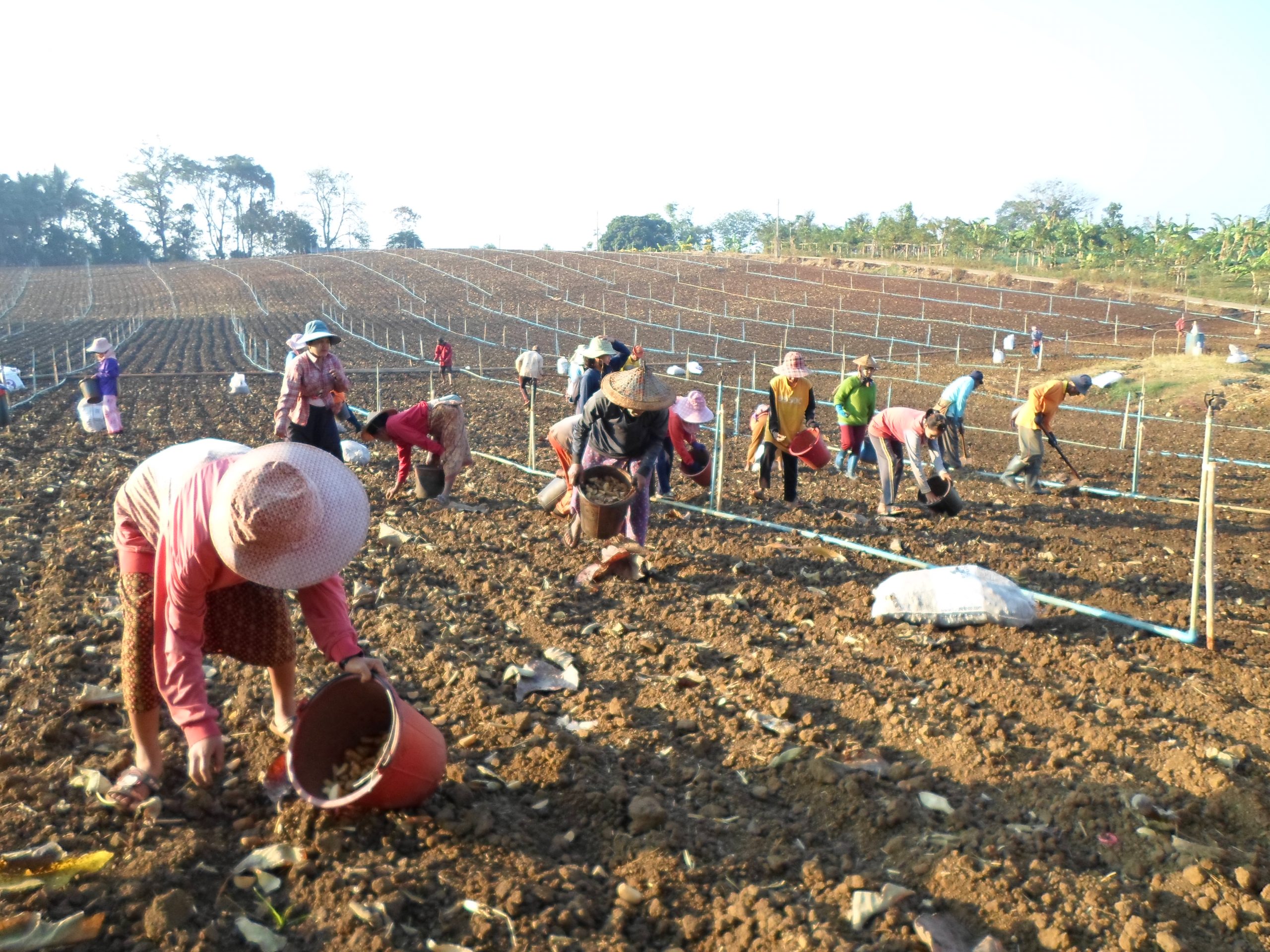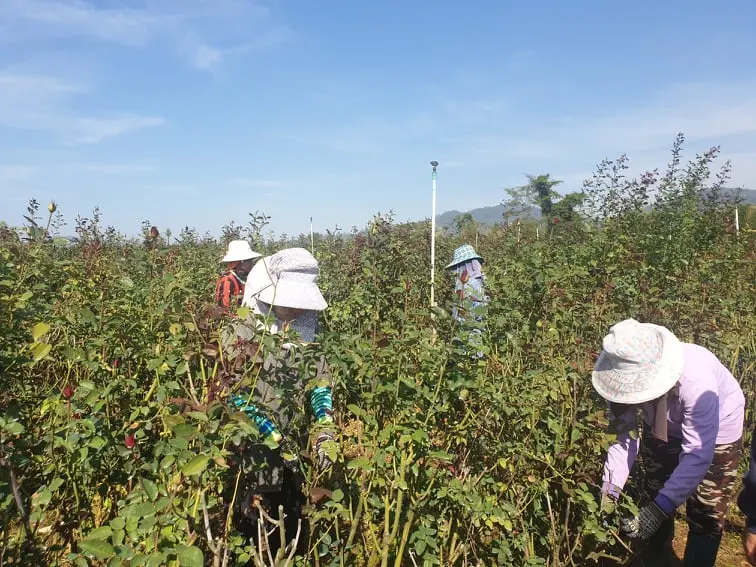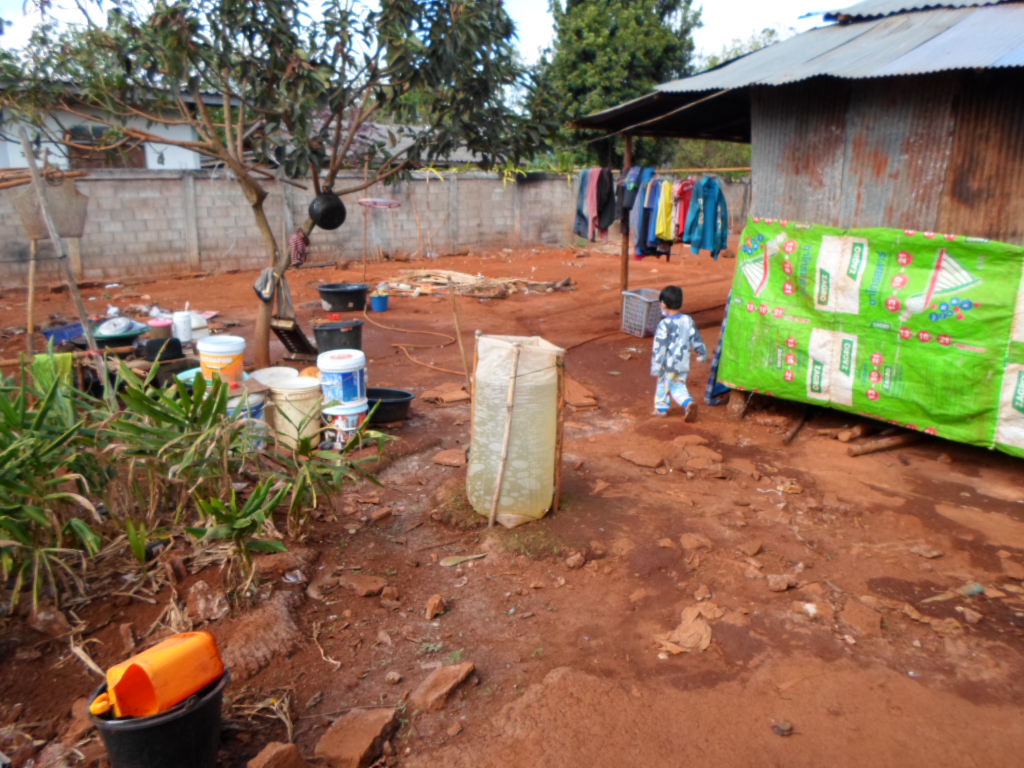
Sofie Mortensen and Saw Aung Htun Lin reflect on the gendered impacts of COVID-19 in Phop Phra, Thailand.

COVID-19 pulled the brakes on Thailand’s agricultural production with devastating impacts for the many Myanmar migrants that work in the sector.[1] Already strained by poor working conditions and salaries as low as half of the 315 THB minimum wage, the COVID-19 shock and following irregular work pushed many migrant workers into debt. This particularly affects the mental health of migrant women whose heavy task of ensuring family wellbeing induces severe stress. Indeed, the continuing economic impacts of the pandemic have deepened gender inequality amongst Myanmar migrants.
Despite common perceptions that gender equality prevails in Burmese society, decades of patriarchal colonial and military rule have taken its toll on women’s rights and enforced strong divisions of labor. Women’s primary duty continues to center around domestic and nurturing activities whilst men are perceived as sole breadwinners. These sociocultural norms have traveled with Myanmar migrants across the border, where the 40 women we interviewed in Tak’s Phop Phra district explained how cleaning and cooking “are a wife’s responsibility.” While some take pride in this, the majority of them are deeply unsatisfied. Than Min who cares for her husband and three children expressed: “Household work is so boring. In the work outside you just do one task, here you do it all and with no salary. I complain to my husband that he should be the one to stay at home.” As this reflects, women, especially with small children, work much less in the fields. Yet, for Soe Min who is 33 years old and has three older kids, the situation is different. She is expected to return to the fields again and then, effectively, shoulder double workloads: “it is more stressful at home, normally, we work both outside and after that, we have to do all the housework.”

While domestic work sustain lives, it is perennially undervalued and oftentimes unpaid. This has, as long argued by feminists, led to a general devaluation of women’s work and thus, lower pay. In Thailand, women migrants experience a 34 % wage gap in the agricultural sector. This is also the case in the Phop Phra district. Similarly, for 21 years old Thandar Soe, who has worked with various crops such as papaya, banana, and corn since she came to Thailand six years ago, the gendered wage disparity persists. With a childhood that also involved farming, she has plenty of experience but earns 160 THB in comparison to her husband who receives 200 THB for the same work. Yet, she shrugs when telling this and mentions, “in this country, they just give different salaries to men and women.” Some women even find this fair and reproduce common perceptions that men deserve higher pay due to their more “laborious” work.
But not all agree with this. Mi Mi, a young girl who does the same laborious work notes: “Actually, we want to get the same wages, but it is becoming a kind of tradition. It is unfair because we work the same hours.” Aung Phyu, a young woman at 17 also documented in her photo how women, despite common views, engage in other hard tasks – such as planting potatoes in the fields in uncomfortable positions over long periods of time. Yet, women continue to receive both lower salaries and carry out unpaid work. They are, therefore, less able to contribute to the monthly household budget, and “without an income,” it is, as 26 years old mother of three Chaw Zen expressed: “very stressful for me.” Particularly as the monthly budget is for women to manage.

Nearly all women we spoke to expressed the heavy weight of having to ensure the family’s present and future wellbeing through managing the monthly budget. In a group discussion, five women stressed, “It is easier for men. They just have to work outside and return the money but not really think about how they are used. It is a huge responsibility for us.” While some women are able to share their concerns with their husbands, others manage it alone. The latter is the case for 25 years old Sandar Oo, who has lived in Thailand for 10 years with her husband and son. She shared: “I return after long hours of work and then have to consider the expenditures. It is so stressful and sometimes I get angry with my husband.” During COVID-19, she and her husband do not have regular work, and their salary does not cover their expenses. Like so many others, her responsibility now also includes taking up loans – at times with interest rates as high as 20 %. Indeed, for many, COVID-19 caused new cycles of debt. And for Ma Sandar Oo, this is a responsibility she alone shoulders.
During the pandemic, women see their families pushed further into poverty and new debt cycles. While the extremely low salaries challenged many families already prior to COVID-19, the work was at least stable and some were able to save up a bit. Zin Mar thus explains with sadness: “Without a regular job, the income doesn’t meet the expenditure. In this year, we really struggle a lot.”This not only affects the present but also their hopes and dreams for the future, which for many, involves buying land to return to Myanmar. Now farther away than ever, 21 years old Moe New put it bluntly: “Even dreaming is impossible. I really struggle in the current situation and cannot dream. Now we just have to keep living without expectations.” Thus, they continue their precarious lives in Thailand, which, as Mar Aung, mentions, is not easy: “I am not really happy like in the past. Here, we have to worry and have no freedom.” On her worst days, San Phyo who cares for her three children, notes how the constant struggle and unpredictable future is so hard to bear that she regularly considers ending her life.

As the stories of these women expose, the agrarian and gendered context profoundly shape their lives and wellbeing. The extremely low salaries in the agricultural sector in Phop Phra make the migrant women and their families vulnerable to any changes in income such as those witnessed during COVID-19. Indeed, the economic losses during the pandemic and the increasing pressure on women’s shoulders are not likely to decrease in the near future. While trying to make ends meet and putting dreams on hold, the current situation raises very real mental health concerns as feelings of anxiety grow. In a disheartened tone, 27 years old Hnin Weh remarked while showing us her photo, “I would like to fly like this cloud. It has no pressure and anxiety and it is free to move. My life is the opposite.”
Sofie Mortensen is a Ph.D. student at the Institute for Food and Resource Economics, Section for Global Development at the University of Copenhagen. Her research focuses on the gendered and generational experiences of Myanmar migrant workers in the Thai agricultural and tourism sector as well as connections between migration and agrarian change.
Saw Aung Htun Lin is a project officer at the Social Action for Children and Women (SAW) in Mae Sot with a special focus on agricultural migrants’ health and rights. He holds a Bachelor of Arts in Social Science from Chiang Mai University.
Notes
*Names have been changed to protect participants.
Like This Article
April 09, 2024
March 20, 2024
December 28, 2023
November 22, 2023
November 13, 2023

Center for Southeast Asian Studies, Asian Institute 1 Devonshire Place Toronto, Ontario, M5S 3K7, Canada
©TeaCircle All Rights Reserved 2023